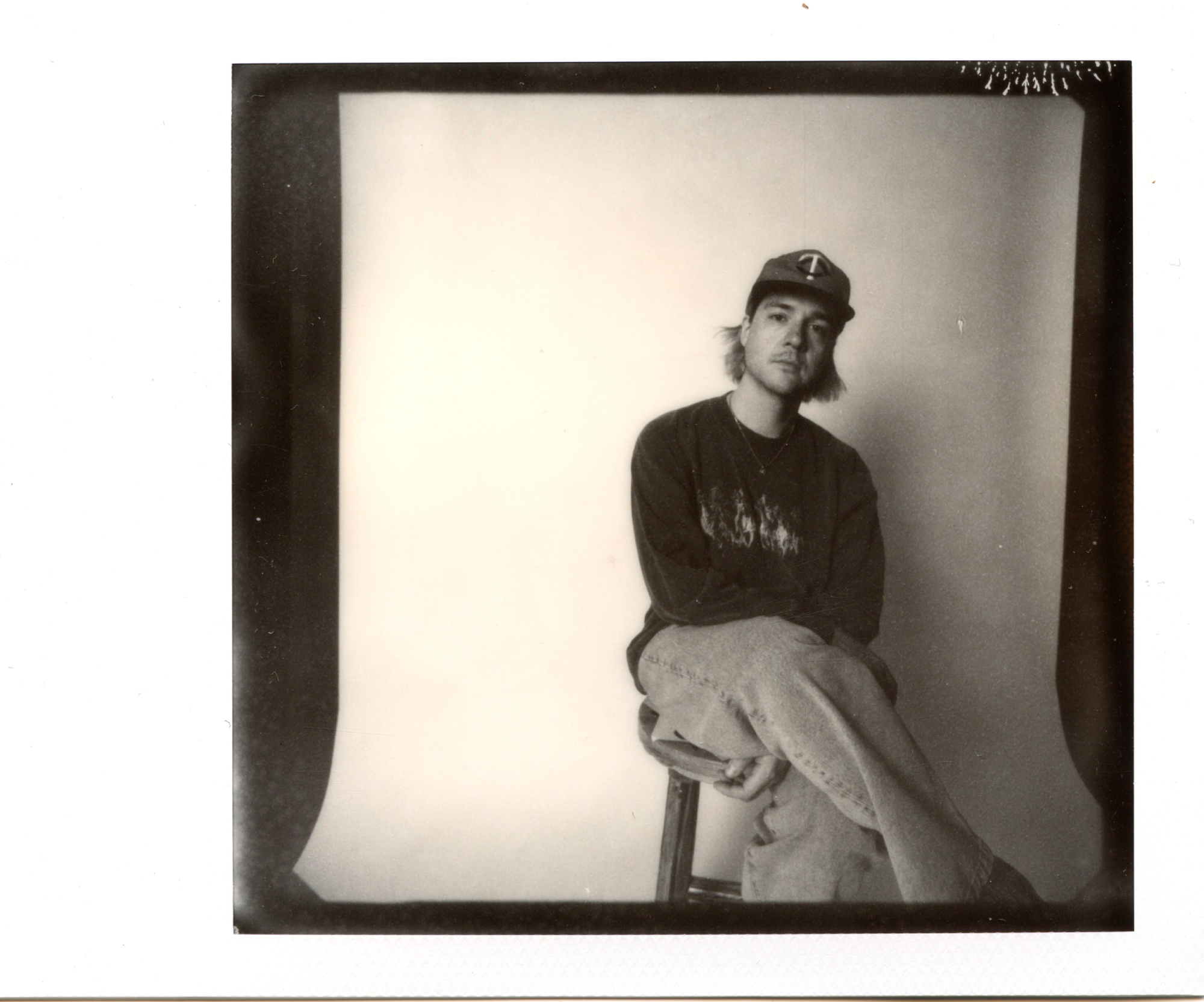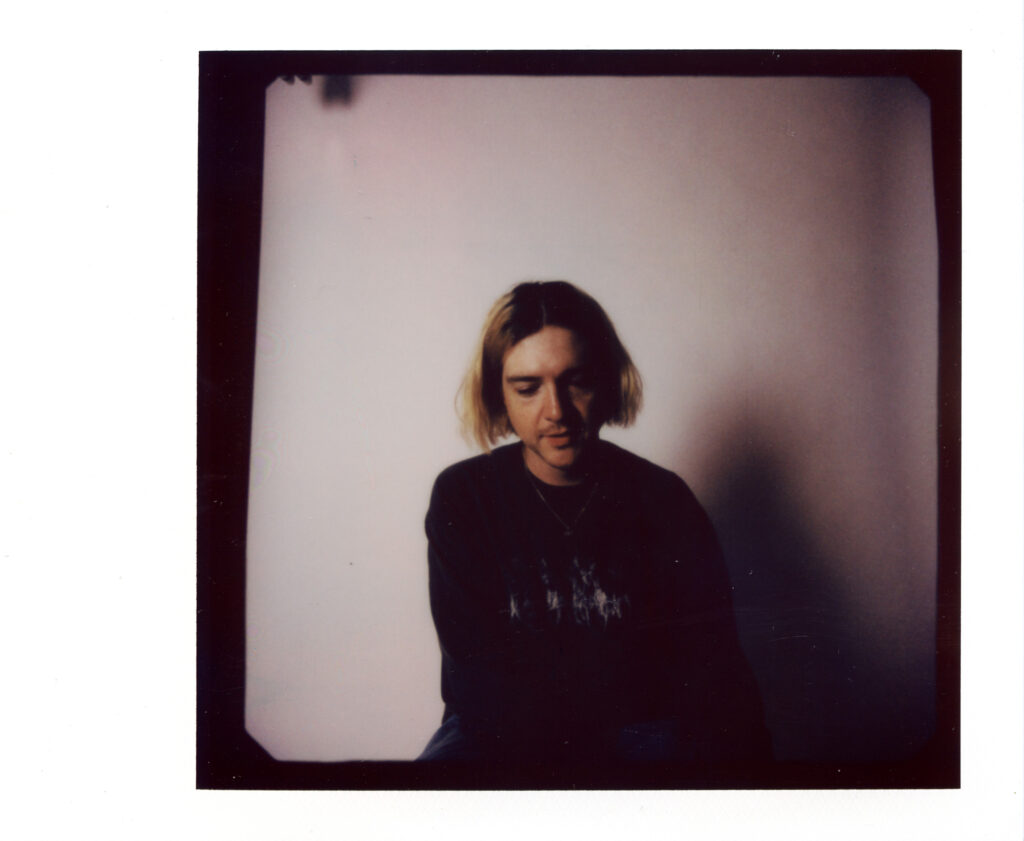
For anyone on the brink of teenagedom at the turn of the century, music TV and CDs reigned supreme as the source of consumption and obsession, especially for a generation of listless kids relying on skateboarding, backstreet boozing, and nu-metal bands to colourise the banality of suburbia.
The breadth of accessible music was scant by today’s streaming standards. Budding music tastes were based on a revolving door of the same music videos on rotation across a handful of channels. If you weren’t indoctrinated by the waves of US bands who permeated music TV channels and rock radio stations at the time, you surely weren’t obsessive enough about music.
The kind of music you discovered yourself, not the songs passed down by your parents or spoon-fed to you via the pop charts. Like many, it marked the start of a personal journey that, in Peter Sagar’s case, would eventually result in Homeshake some years later.
“Since I was a little kid, I just absorbed as much music as intensely as possible,” Peter tells me from his bedroom slash studio in Toronto. MuchMusic, Canada’s version of MTV, became the oracle for music discovery during his early teens. Up to that point, he’d relied solely on his father’s CD collection, largely made up of jazz records. An audio engineer for television by day, his dad was a jazz musician by night.
“When it moved from being my dad’s CD collection, into all this shit we’re talking about, there was more of a sense of freedom about it.” The proverbial ‘shit’ we’re talking about are the albums that made up Sagar’s sacred CD wallet, a precious artefact he’s revisited for his aptly named recent album, CD Wallet.
Days spent fixated on the television transitioned into spending any spare pocket money on the CDs deemed a worthy addition to a burgeoning collection. Play through, then repeat the same songs again. And again. For kids with limited budgets, music was harder to come by, so naturally, the roster of CDs got rinsed. No wonder System Of A Down, Incubus, and the compilation soundtracks to Godzilla and The Matrix are so ingrained in Sagar’s psyche.
“It’s just been my favourite thing since I was four years old. It was always just the thing. When I was old enough to save some money and go to HMV, I’d stand there beside the two-for-fifteen racks and just stare at them.”
But Peter himself seems bewildered as to why, at this point in his career, he buried deep into the bosom of nostalgia. “Obviously I’m in my thirteen-year-old headspace on this album. I don’t know if I should’ve embraced nostalgia so intensely. It was sort of an inevitability. It was something I was going to make at some point. So I just decided to do it.” There was a subconscious itch to scratch.
CD Wallet is certainly a stylistic curveball for Homeshake. Sonically, he’s never sounded so heavy. But also his songs have never weighed so heavily either.
READ MORE: ★★★★☆ King Krule at Hammersmith Apollo review | Existentialist staying power
In conversation, Sagar is considered and assured in his introversion despite seldom making eye contact – a difficulty through a computer screen, granted. Reluctant to elaborate on several answers, he pours his candour into his songwriting.
To date, Homeshake has been defined more so by the jazz records in his father’s collection. His woozy, melancholic brand of guitar-based R&B often digs into Sagar’s own anxieties and struggles with depression. But the subject matter is disguised by his musical playfulness. On CD Wallet, his isolation is laid bare. Perhaps it’s the sidestep into slowcore, and the baggage that comes with a gloomy post-grunge sound. Rather than alienating his fanbase with the change in direction, however, they seem more concerned about his frame of mind.

“I was kinda surprised at the end, to find out what a depressing album it was. I didn’t notice until people started asking me if I was ok, after it came out. Which was super weird to hear from strangers on the internet.” Peter took to social media to allay any fears soon after CD Wallet was released. “I guess it is dark. I was just, you know, trying to remember growing up drinking behind dumpsters and stuff. It didn’t seem that sad to me.”
Revisiting the music of his youth would, naturally, stir the memories and icy imagery of his hometown origins. Born in Edmonton, the capital city of the Canadian province Alberta, Sagar lived there until his early twenties before relocating to Montreal. The album cover – shot by his girlfriend Salina – depicts a frantically messy teenage bedroom.
Out of shot, there’s a poster of Incubus’ drummer Jose Pasillas, which he shows me has made its way to his current Toronto residence. By that time, he was already an established musician, having played in numerous bands such as The Subatomics, befriending Mac DeMarco at high school, whom he’d later play guitar for. “I never considered that I wouldn’t have a career in music. That wasn’t an option. Growing up in Edmonton, it was the only thing.”
There was always a pull to leave, and to progress, however. It was only to shoot the video for the single ‘CD Wallet’, which encouraged Sagar to return. “I’ve been avoiding going there a lot. I go there very little. My parents don’t live there anymore. It’s easy to avoid. It wasn’t until we shot the video that I went back and revisited the old haunts.”
Anyone who has migrated from their hometown has felt the uncomfortable dislocation of going back. People and places change, yet it feels unshakably and eerily familiar. “It’s a strange place. It’s an isolated place,” Sagar explains. “After I left, I didn’t really think about it for a long time. Probably most people’s relationships with their hometowns are complicated. It was kinda weird, dredging it all up again. I had some things going on in my mind that were bothering me, that are tethered to there.”
The solitary sensibilities of ‘Basement’ and ‘Listerine’, strangely enough, feel like a sanctuary for Sagar. “I’m with my friends in the basement / happiest here in my basement”, Sagar contently coos on the former. “Don’t gotta pretend in my basement / ‘cause everything else is upstairs.” A duality of escape and refuge permeates CD Wallet. There’s a comfort in his loneliness, which he found easy to nestle back into. “There wasn’t any struggle in it,” Peter shrugs.
One aspect of being a professional musician that he struggles with, however, is touring overseas. “The last one in Europe was really difficult on me. So I hope nobody’s offended when I say I’m scared to go back. I’ve never managed to make it through a tour in Europe without having a mental breakdown. I don’t know why. It’s just for whatever reason, a difficult place to be.”
An honest take from an artist who, on his sixth full-length album, has found solace in the temporal safety net of his own teenage wasteland. For now.
Photo credit: Matthew Yoscary
Keep up to date with the best in UK music by following us on Instagram: @whynowworld and on Twitter/X: @whynowworld




